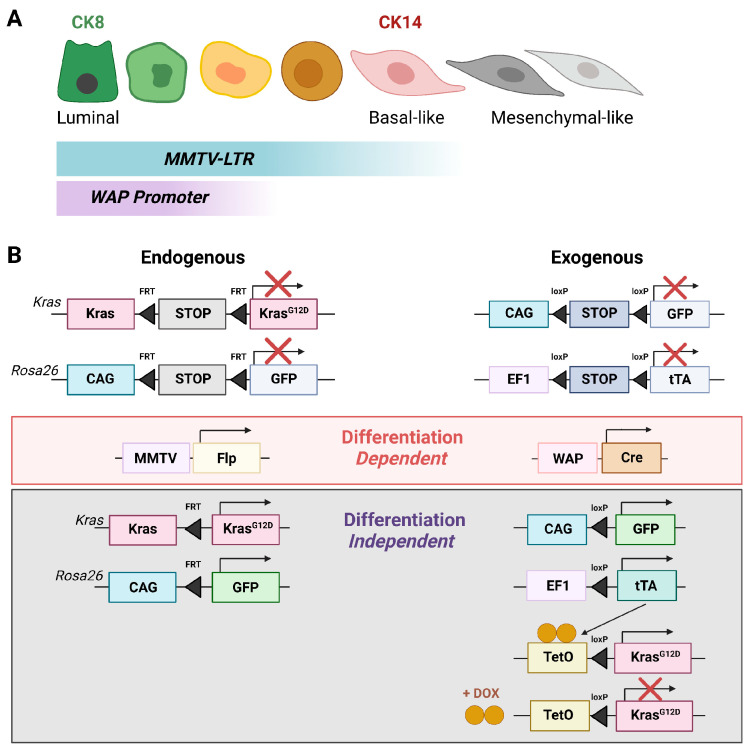Figure 5.
Advances in the development of experimental models to study cellular plasticity in tumor initiation and progression. (A). Illustration of the epithelial cell lineage-dependent activation of the MMTV-LTR and Wap gene promoter that are used to target the expression of oncogenes to the mammary gland. Note that the activation of these regulatory elements is highest in the luminal epithelium and absent in the mammary stroma. Therefore, the expression of the oncogene is tethered to cells that retain epithelial characteristics as long as the cancer cells are dependent on the oncogene for their growth and survival. (B). Two experimental approaches to express oncogenes in the mammary epithelium in a cell differentiation-independent manner. In these models, the mammary epithelial cell lineage-dependent activation of oncogenes (or reporter genes for cell lineage tracing) is mediated by the transient expression of DNA recombinases (Cre, Flp) that activate oncogenic mutant alleles of an endogenous gene (left) or the expression of transgenes that activate oncogenes from a ubiquitously active promoter or gene locus (right). An advantage of the transgenic (exogenous) expression model is its versatility in that oncogenes can be expressed in a ligand-mediated (i.e., doxycycline-controlled) as well as differentiation-independent manner to study the roles of oncogenes in the maintenance of cellular plasticity (e.g., mesenchymal properties of the claudin-low breast cancer type).

